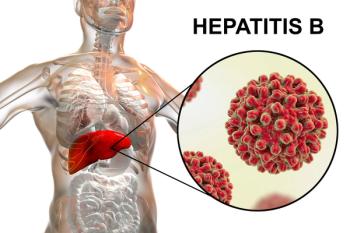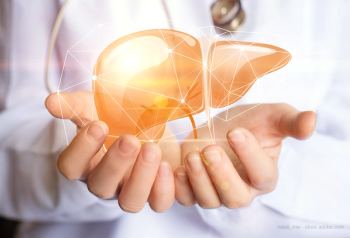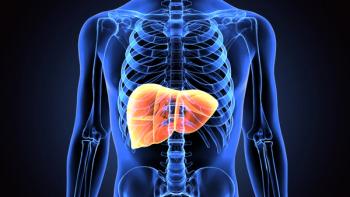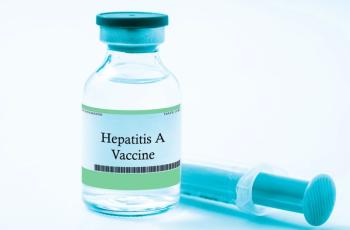
Foundation, Startup Launch Genetic Testing Study For NAFLD
The goal is to screen 20,000 people in the U.S. with at-home genetic tests for nonalcoholic fatty liver disease (NAFLD).
The Fatty Liver Foundation (FLF) recently joined forces with Sano Genetics, a British health tech startup, to offer genetic testing for Americans at risk of developing nonalcoholic fatty liver disease (NAFLD) and nonalcoholic steatohepatitis (NASH).
FLF’s Screening for Undiagnosed NAFLD and NASH program has already screened more than 1,000 US adults who are asymptomatic and at risk from both conditions. Results published in
Now the program is expanding. Sano Genetics' at-home genetic testing kit will be offered in addition to a non-invasive transient elastography to assess liver fibrosis in 20,000 at-risk and asymptomatic individuals across multiple community sites in the U.S.
“The new partnership with genetic testing company Sano “aims to further close the knowledge gap on hereditary risk factors with at-home DNA testing, as well as offering personalized opportunities for individuals to learn about reducing their risk through lifestyle and diet, to keep up to date with new developments in treatments and research, and to participate in medical research and clinical trials themselves,” FLF said.
According to
According to the foundation, fatty liver disease currently affects around 100 million Americans, though most don't know they have it…[and] the current medical standards policy is not to screen for liver disease, unless people are sick and have symptoms.
Several research studies have shown that NAFLD/NASH may be heritable and can be influenced by many different genetic changes. Liver fibrosis has been shown to be a heritable trait, while family history can also impact the chances of developing the condition, especially if a first-degree relative has NAFLD/NASH.
Managed Healthcare Executive® spoke with
What is the importance/significance of offering the testing? What is the estimated US healthcare cost savings?
Short: As the research is still early, it's difficult to estimate a U.S. healthcare cost savings. However, we know that undiagnosed NAFLD/NASH is one of the leading killers in the US, and low-cost early detection and prevention has the potential to save tens of thousands of lives and improve hundreds of thousands to millions more.
Furthermore, more access to genetic testing will help accelerate precision medicines that target genetic forms of NASH, which could be transformative for a subset of patients who carry these genetic variants.
Eskridge: Genetics and family history can impact the chances of developing NAFLD, especially if a first-degree relative has NASH. Besides genetics, lifestyle can also affect the chances of developing NAFLD/NASH.
Are genetic tests for NAFLD and NASH already used in the U.S. or the U.K.?
Short: DNA testing is not routinely used in healthcare for NAFLD/NASH in the U.K. or U.S. This research is still early. We hope to help pave the way for genetics to be used in noninvasive screening, treatment and health management.
What is the cost of the genetic tests offered through Fatty Liver Foundation?
Eskridge: The tests will be free to patients as part of a research study. Thestudy will be submitted to an independent ethics review board for review and approval prior to launching. The study will be led by the Fatty Liver Foundation, with Sano Genetics as a partner providing the genetic testing kits and participant engagement platform.
Newsletter
Get the latest industry news, event updates, and more from Managed healthcare Executive.























